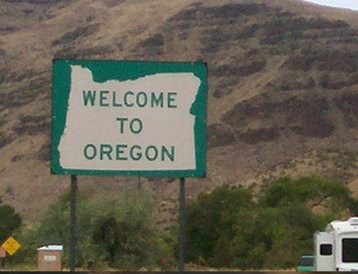Oregon could enjoy massive inward investment if it wasn’t for its data center penalising tax laws, Amazon has told state lawmakers. The online trader said the current tax regime has been a deterrent to building at least 11 more data centers in the state.
This week new bills will be debated by Oregon state lawmakers which could exempt data centers from the so-called brand tax which links premiums on utilities’ property to the value of their brand, so large firms such as Amazon and Microsoft pay more tax than in neighboring states.
Amazon state public policy manager Eileen Sullivan addressed the Senate Committee on Finance and Revenue on February 4th, in a bid to persuade the state to rethink its tax regime. Sullivan argued that Amazon.com could still build 11 more Oregon data centers if the state addressed the tax challenges faced by data center operators.
‘Opportunistic’ tax regime
Administrators in the US state of Oregon have been accused of driving data center business away from the area with their “opportunist” taxing of data centers.
Critics say a hastily prepared initiative to raise revenue – dubbed the ‘brand tax’ – has dissuaded many tech giants from investing in local data center construction. Oregon tax law stipulates premiums on utilities’ property must rise with the value of a brand.
Amazon has four data centers on 100 acres it owns at the Port of Morrow in eastern Oregon. Progress on a fifth stalled, however, as the tax situation made Amazon re-evaluate its finances.
In a priority legislative session in Salem lawmakers tried to strike a balance to address the potential loss of revenue to the state. The ‘brand value’ sticking point relates to the way the state values a company’s intangibles in addition to its property. The value of a company’s brand currently comes under this heading.
This “central assessment,” method dates back to 1973 and was originally applied to telecoms companies. Comcast has previously fought and lost an appeal against this to the Oregon Supreme Court. The ruling has made data-center operators and telcos wary of entering Oregon even though the brand tax hasn’t been applied to data centers – yet.
While data centers are second only to the semi conductor industry for creating inward investment, they create relatively little employment in Oregon, with each facility providing around 24 jobs, once construction is complete.
Amazon, Apple, Facebook and Google were all originally attracted to Oregon by the absence of sales tax on their equipment and an exemption on property taxes through the creation of enterprise zones. These tax breaks created savings of tens of millions of dollars a year. Now data center operators are calling for a new tax regime.
“Eliminating the threat of central assessment will permit Amazon to continue to invest in Oregon,” said Sullivan. With four data centers in the state already it had planned to “go north of 10, to 12 or 15,” said Sullivan. Amazon declined to respond to request for more detail however.
In the week starting Feb 9th, the state will consider two new bills. The first, SB 570, could put a cap on central assessment. The second alternative, SB 571, would be a bill to exempt data centers altogether from central assessment.


